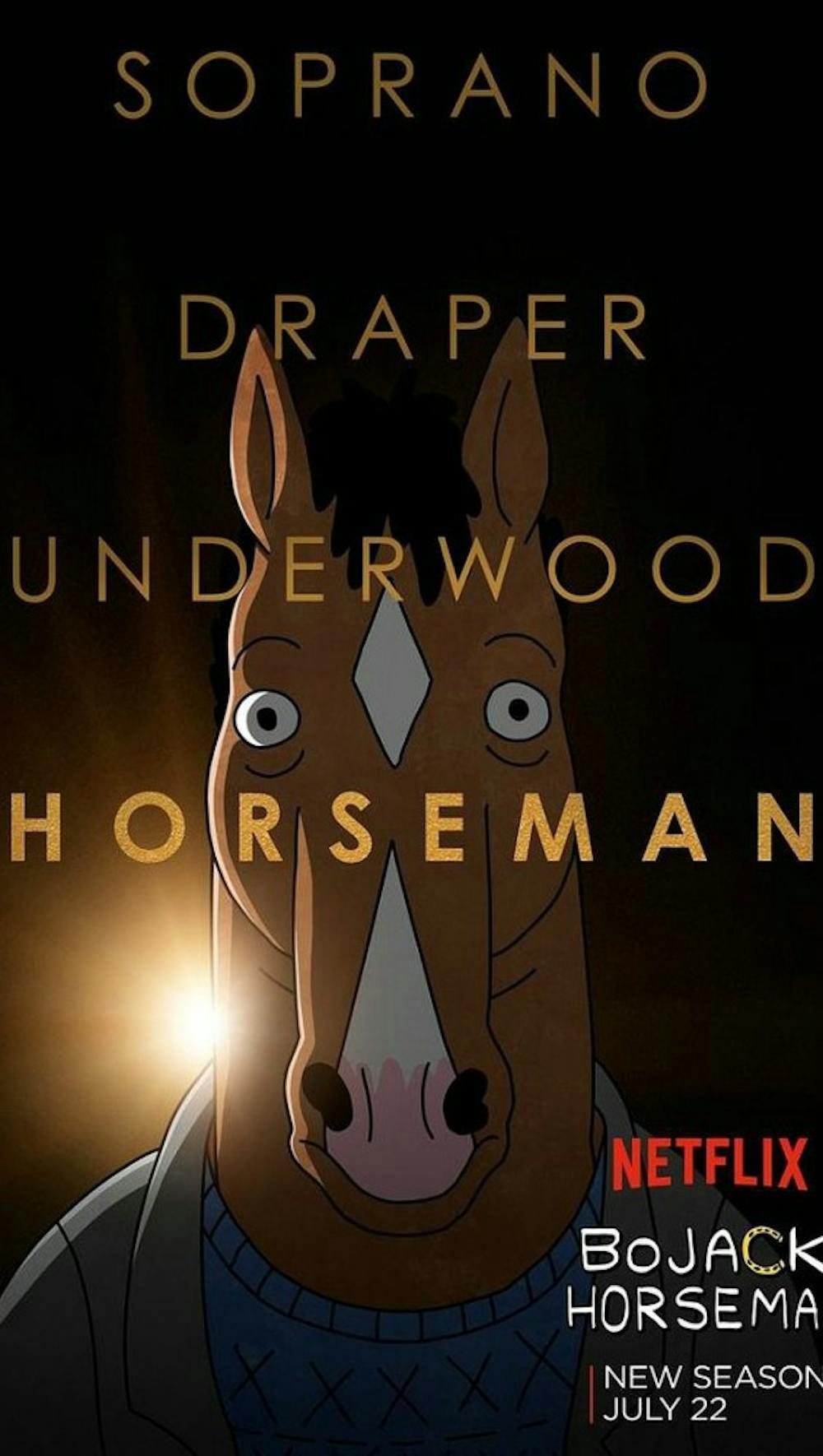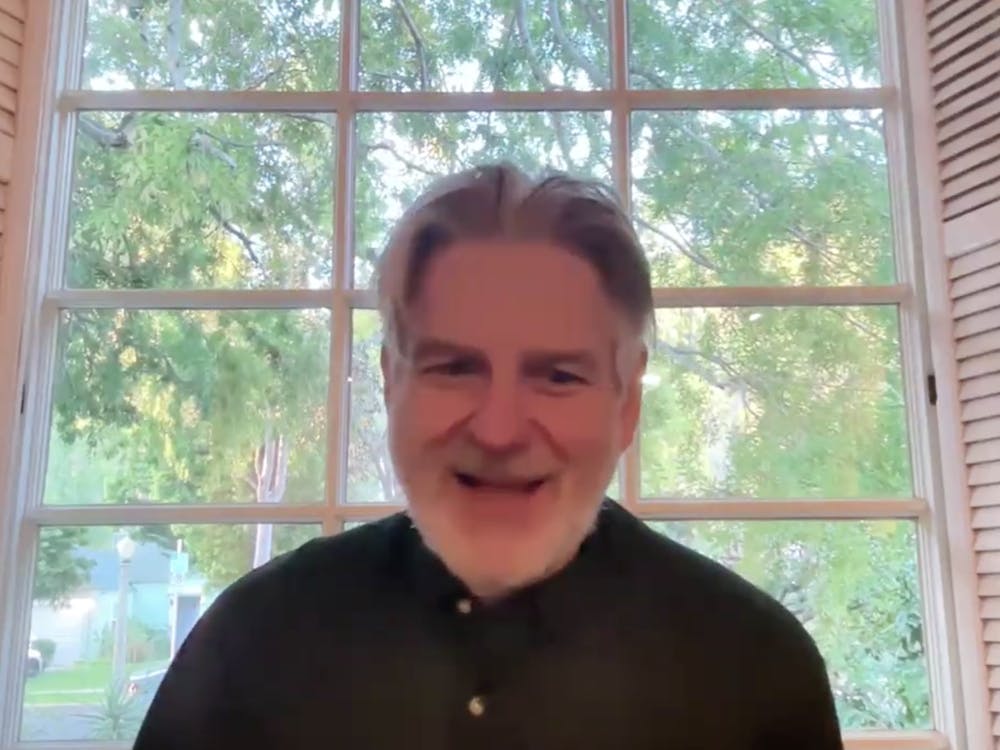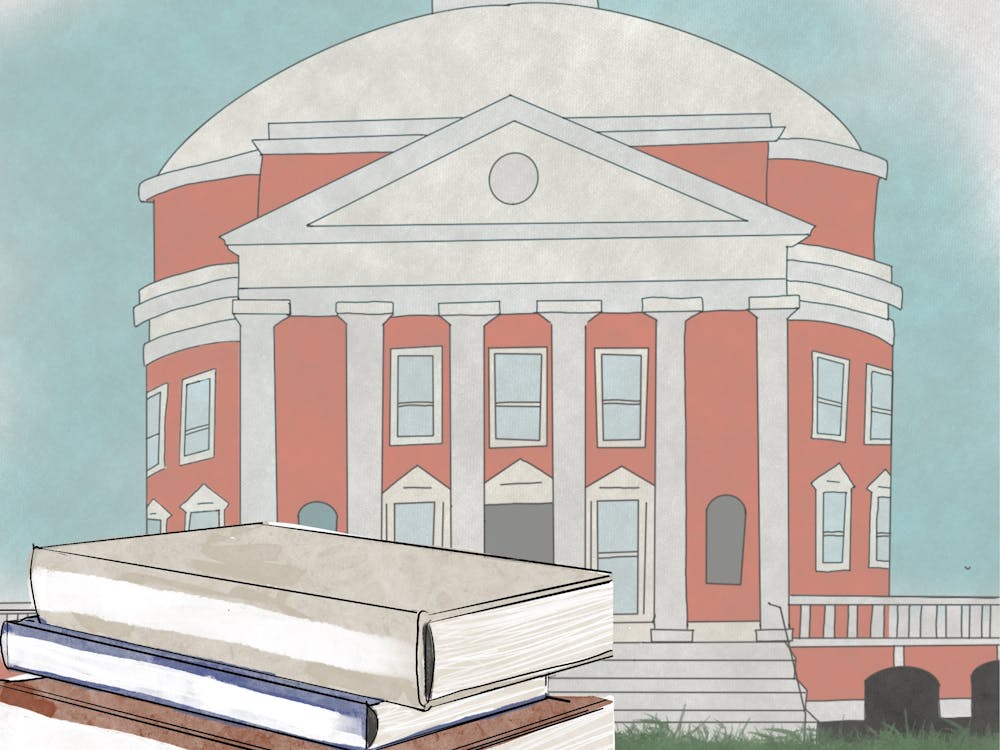Season 3 of “BoJack Horseman,” released in its entirety on Netflix on July 22, cements the show as one of the year’s best. The season is an intricate exploration into the crippling depression of its titular character, placated by the show’s trademark takedown of Hollywood and popular culture. Big on storytelling, the season vacillates back and forth between the present day and 2007.
The flashbacks focus on the period when BoJack starred in “The BoJack Horseman Show,” an ill-conceived followup to his hit show “Horsin’ Around” which gets panned by critics. This backstory gives the already well-developed characters tremendous depth, and allows the viewer to better understand the roots of BoJack’s psyche.
The season kicks off with BoJack in the midst of the promotional tour for “Secretariat,” the film completed with a CGI version of Bojack after his unfortunate soul-search in New Mexico last season took him away from production. The interview room is stuffy, and BoJack plays host to an assembly line of news outlets cycling in and out, repeating the tired promotional questioning BoJack is averse to: “how does it feel?” Most viewers would doubt even BoJack knows.
These scenes pick at the show’s ethos, and they demonstrate why BoJack is the perfect character to bring the show along. A star’s profile is temporary, fleeting if not carefully fortified by the productions which keep their name in the social consciousness. BoJack is hamstrung by a desire for immortality, gauging his self-worth and entire career by whether or not he has achieved it.
Unfortunately, immortality is a grace bestowed almost exclusively in retrospect, after a career has been tallied up and carefully packaged in hearts and minds. BoJack will never taste that happiness, and it is unclear if it would even satisfy him in the first place. Immortality in this sense is a guarantee of remembrance, existing in his mind only to ensure his career was actually worth something.
The entire season is a trip through BoJack coming into, and subsequently shedding, potential happiness: the Oscar nomination, fame, friendships — all are laid to waste. In the season’s premiere episode, “Start Spreading the News,” BoJack almost ruins his chance for an Oscar when he spills a damaging secret to a reporter.
Despite his publicist Ana Spanakopita making the matter disappear, BoJack confesses he was, for a moment, relieved he almost blew it, as if the road to validation was not worth the anxiety. If the stress leading up to the Oscars is almost as unsatisfying to him as the work going into earning it, it begs the question if any of this really worth it.
Ana says, while winning an Oscar won’t make BoJack happy forever, it will give him one great night. Supposedly this is worth it, though the season, if anything else, can be billed as an exploration of the merits of such temporary happiness. “It’s You,” the season’s 10th episode, shows BoJack partying with a group of fans after his Oscar nomination. Though a twist later in the episode reveals his celebration to be premature, the party is a glimpse into his life of fame. Close relationships fall apart, and Bojack is surrounded by people only interested in his material success.
The episode ends with a surprising bit of clarity from BoJack’s roommate Todd (voiced by Aaron Paul), who tells BoJack he is the source of his own unhappiness. The scene harkens back to an earlier episode where BoJack and Diane Nguyen, his friend and former ghostwriter, track down the acclaimed director BoJack worked with on “The BoJack Horseman Show.” They find him at a familiar retreat, completely removed from his “meaningless” life in the bubble.
“Only after you give up everything,” he says, “can you begin to find a way to be happy.” On the drive back home, the moment is still clearly affecting BoJack and Diane, both going through their own respective ordeals. The lessons learned hang over the entire season.
The moment culminates in the season finale, ending with BoJack abandoning the set of “Ethan Around,” a hatchet-job spin-off of “Horsin’ Around.” He ends up on the freeway leaving California, a nod to his season two fleeing from California to New Mexico. He lets go of the wheel and presses on the accelerator, only slamming on the brakes and ending this possible suicide attempt when he sees a herd of horses sprinting past him.
The season ends there, with BoJack staring down his chance to “give up everything.” It is a true crossroads moment. Season four has been announced for 2017, and expectations will be colored profoundly by the cliff-hanger ending.





